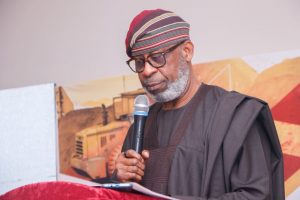With cases of violence against women and girls increasing globally, the United Nations, the Federal Government of Nigeria and other stakeholders have charged Nigerian media to step up its watch-dog roles in bringing culprits to account for their evil deeds.
They said this in a webinar which attracted over 150 participants worldwide, organised by Spotlight Initiative in collaboration with the Federal Ministry of Women Affairs, with the theme ‘The Role of the Media in Promoting Accountability to End Violence against Women and Girl’ which was monitored by our reporter in Calabar.
Speaking, the UN Resident Coordinator in Nigeria, Mr. Edward Kallon, said the UN has put in $500 million global investment to fight against gender-based violence, describing violence against women and girls (VAWG), especially during the COVID-19 pandemic as ‘a pandemic within a pandemic.”
While noting that “43 percent of girls are married before the age of 18 and that 17 of them before they turn 15,” Mr. Kallon linked the underlying factors responsible for such anomaly to include issue of mental health, poverty and socio-cultural norms that support violence against women and girls. He charged the media to play its opinion-shaping roles well.
The Minister of Women Affairs, Dame Pauline Tallen, who was represented by the director, Women Department in the ministry, lamented that during the period of COVID-19 experience, violence against women was very high, adding that the media have the capacity in reversing the trend.
Spokesman for President Muhammadu Buhari, Mr. Garuba Shehu, in his remarks, said “the media’s role on agenda setting and exposure through investigative journalism should be enhanced for changes to be seen. In some cases, the fear of exposure of crimes could be a better deterrent than actual punishment. Spotlights should be on violators and not on victims who should be protected.”
The EU Ambassador to Nigeria, Mr. Ketil Karlsen, whose speech was presented by Clement Boutillier, said “for every case reported, many go unreported. The media plays a crucial role in putting issues on the agenda and in raising awareness at all levels of society. Media has a wide reach, also reaching vulnerable populations in their own language and via accessible media like radios. The media should shape narratives.
“The media have a professional responsibility to be sensitive to issues of GBV, to speak out and to report on GBV cases appropriately, while protecting the identity of victims and being careful not doing harm to survivors.”
In her keynote address, child protection specialist, UNICEF, Dr. Olasunbo Odebode, identified drivers of VAWG as negative socio cultural norms, low status of women, harmful practices, culture of silence, taboo and low educational and economic status of some women.
She charged the Nigerian media to use their platforms in changing the negative social norms, to raise awareness on violence, shape public opinion and promote justice for survivors.
Odebode warned the media against news reports which could present victims as being responsible for what happened to them, adding that identity of victims should be protected.



